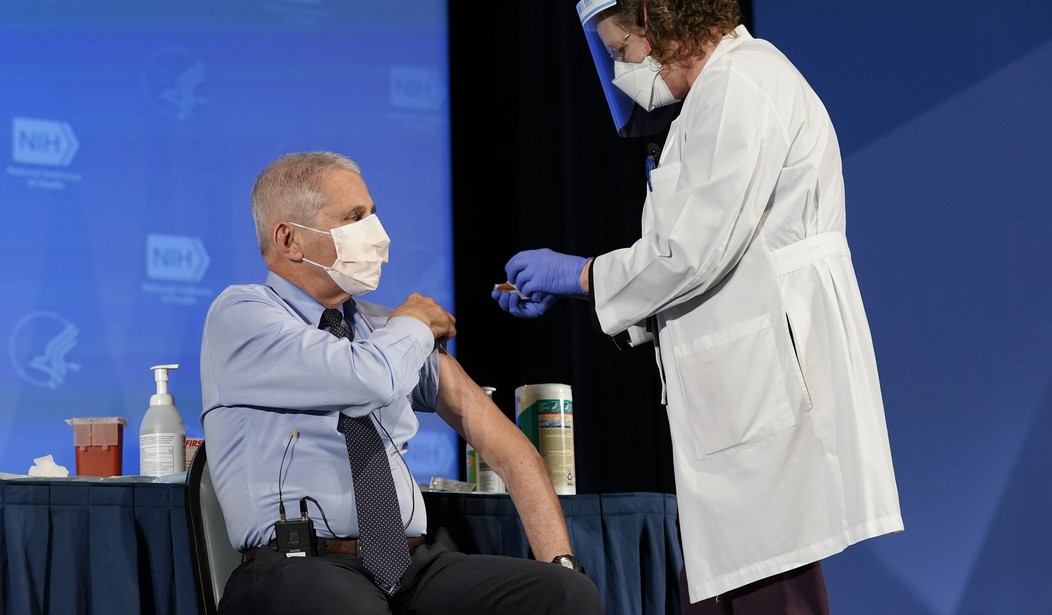Hope is here for those awaiting a COVID-19 vaccine. Three pharmaceutical companies, AstraZeneca, Moderna and Pfizer have reported efficacy rates of 90%, 94.5% and 95% respectively. This is encouraging news almost a year since the start of the devastating COVID-19 global pandemic.
As plans ramp up for distribution and administration of the vaccine, state lawmakers should enact public policies to facilitate widespread administration to countless Americans. They should start by reviewing and revising pharmacy practice statutes in preparation for a vaccine many will flock to receive. Pharmacists are integral members of the army of health care providers who will be needed for wide scale vaccine administration.
The U.S. Department of Health and Human Services (HHS) has taken important, but insufficient, steps in the right direction. In September of this year, it issued a Guidance for licensed pharmacists and pharmacy interns regarding the COVID-19 vaccine. One month later, HHS issued another Guidance regulating pharmacy technicians and interns relating to childhood vaccine administration and COVID-19 testing.
While these actions are intended to provide a clear path for comprehensive administration, in actuality they are a “one-size fits all” approach that may actually hinder pharmacists, interns and technicians in some states from participating in a wide scale vaccination plan. Some states have eased restrictions on pharmacists, interns and technicians more than what is allowed under the HHS guidances. HHS recognized this possibility could exist and permits that in those cases states may follow their own statutes for pharmacist administration.
Recommended
At first blush this sounds ideal - providing states with the authority to decide. Unfortunately, an unintended consequence of this allowance is that some states will be forced to follow the more restrictive HHS guidelines because their state statutes only relate to FDA-approved vaccines. The new COVID-19 vaccines are not currently FDA-approved. They are, instead, allowed under an Emergency Use Authorization from the federal government. As such, states would have no choice but to follow more restrictive guidelines if they want to administer the new vaccine.
There are three key obstacles in the HHS Guidance reports for states on the forefront of pharmacist practice reform:
The first barrier is the requirement that licensed pharmacists must complete a minimum of two hours of approved immunization-related continuing pharmacy education during each state licensing period. Many states do not require continuing education specific to immunizations. This requirement will place a strain on pharmacists and their state examining boards. The additional training requirement will serve as an obstacle for pharmacists who will need to find and complete immunization-specific continuing education in the coming weeks in order to participate in COVID-19 vaccine administration.
Another barrier the HHS guidance presents relates to the requirement that pharmacy technicians be “certified” in order to administer vaccines. In many states, pharmacy technician certification is not mandated. While many health care systems, pharmacy chains and individual pharmacies require certification, they are not mandated by the state since the technicians are under the direct supervision of the pharmacist. If a technician is not currently certified, it will be extremely challenging for them to get certified in the coming weeks. These technicians will greatly help in mass vaccine administration efforts.
A final impediment in the HHS issued guidance is the requirement that licensed pharmacists must inform vaccine patients who are children and their parents of the importance of primary care well-child health visits with licensed providers. Once again, not all states require this advice from the pharmacist. Teenagers aged 16-18 years who - in many states - do not legally need to have an adult present to receive vaccines will find themselves in the position of not being able to walk or drive themselves to the pharmacy. This inconvenience could lead to delays in vaccine administration, especially in rural areas.
Now is the time for state lawmakers to evaluate their state pharmacy practice regulations to ensure that all hands are on deck to maximize the administration of a COVID-19 vaccine. Codifying state law to permit pharmacists, interns and technicians to administer vaccines allowed under an EUA will not only be helpful during this current pandemic, but will also go a long way toward increasing overall vaccination administration rates.
The current recommendations under the HHS guidances are time-limited. There are no indications at this point as to when these allowances will be continued or removed altogether. States should get ahead of the federal government and act now to ensure they are in a position to meet the needs of their citizens.
Leah Vukmir is the Vice President for State Affairs with the National Taxpayers Union, a nonprofit that advocates for taxpayer interests at all levels of government.
























Join the conversation as a VIP Member